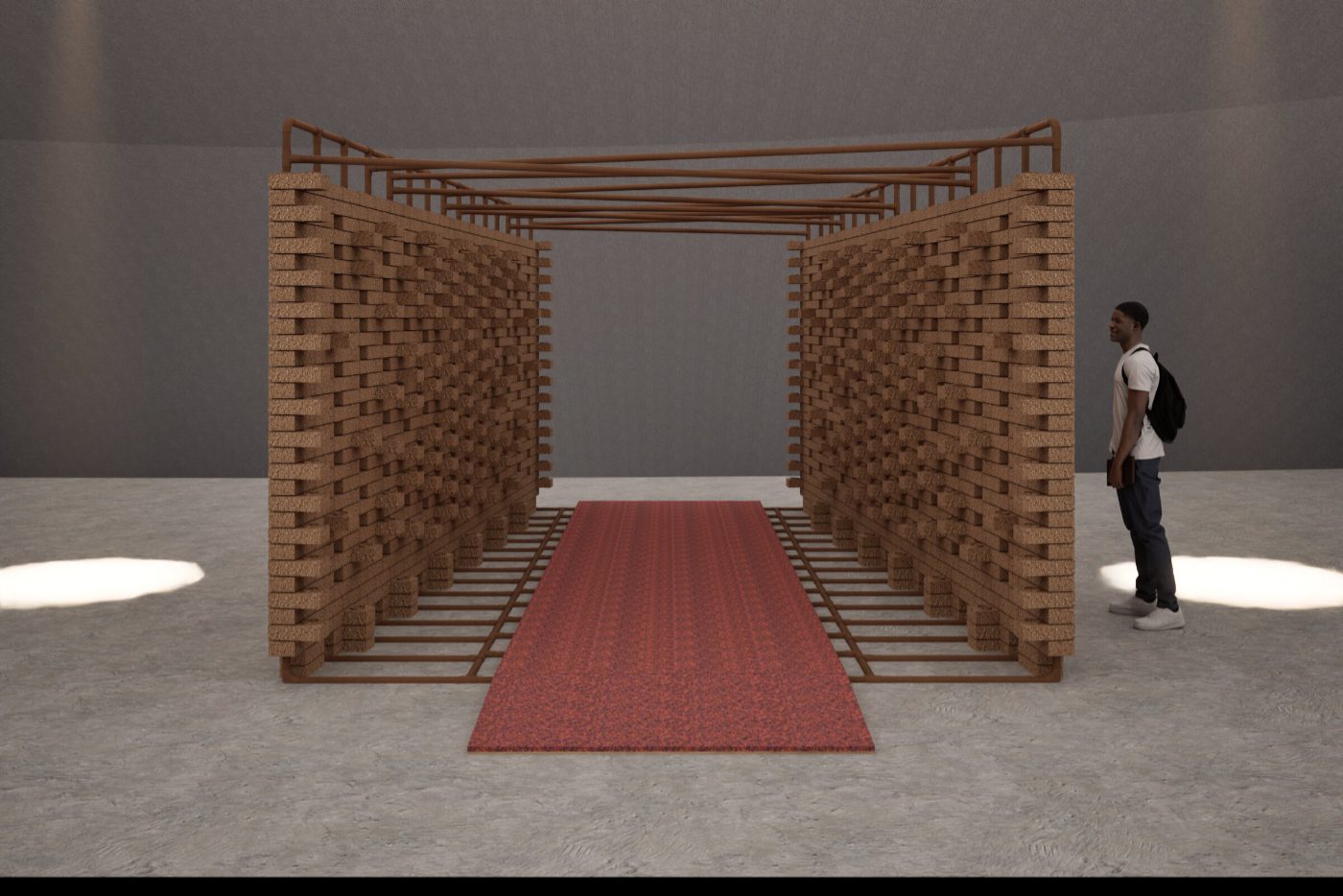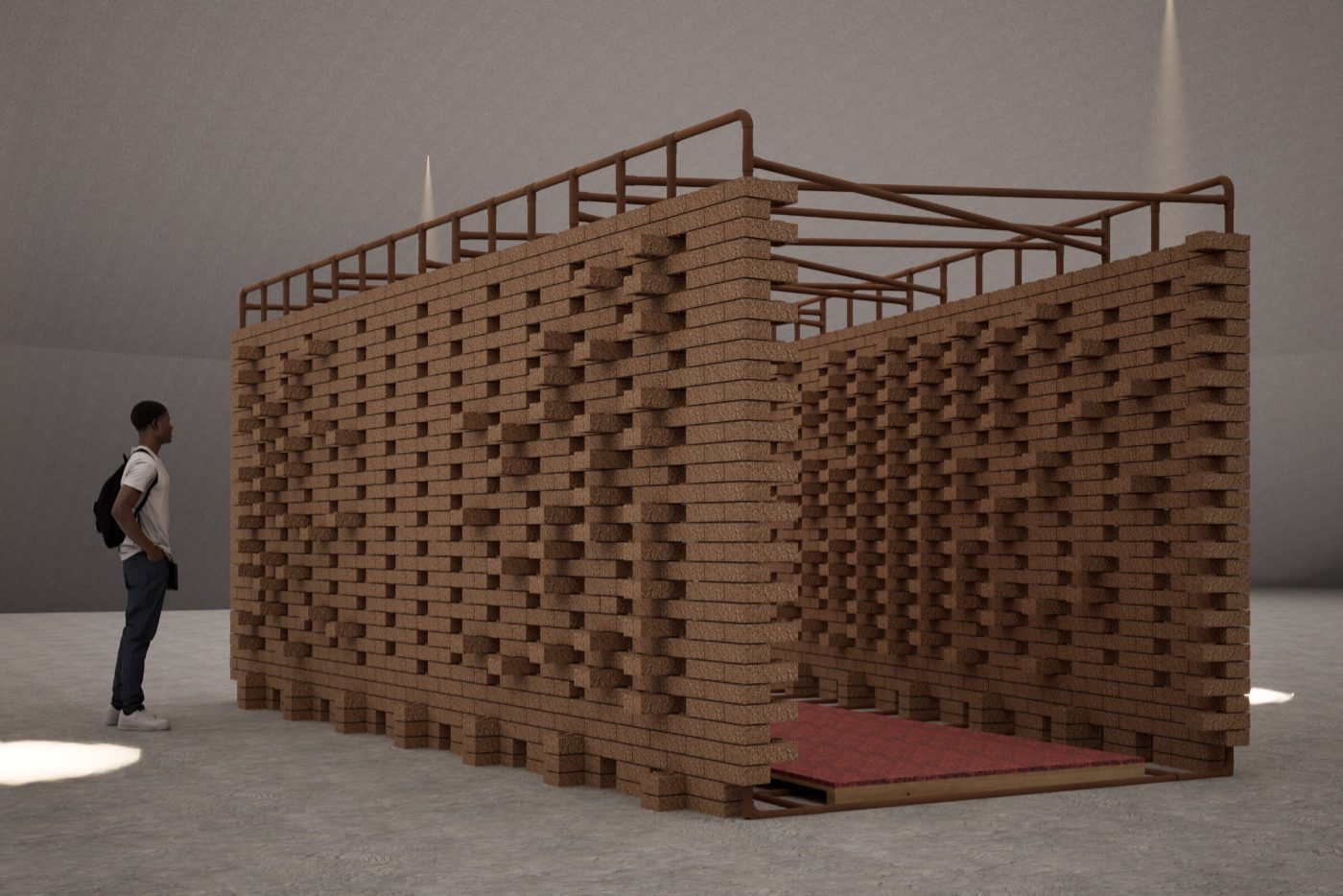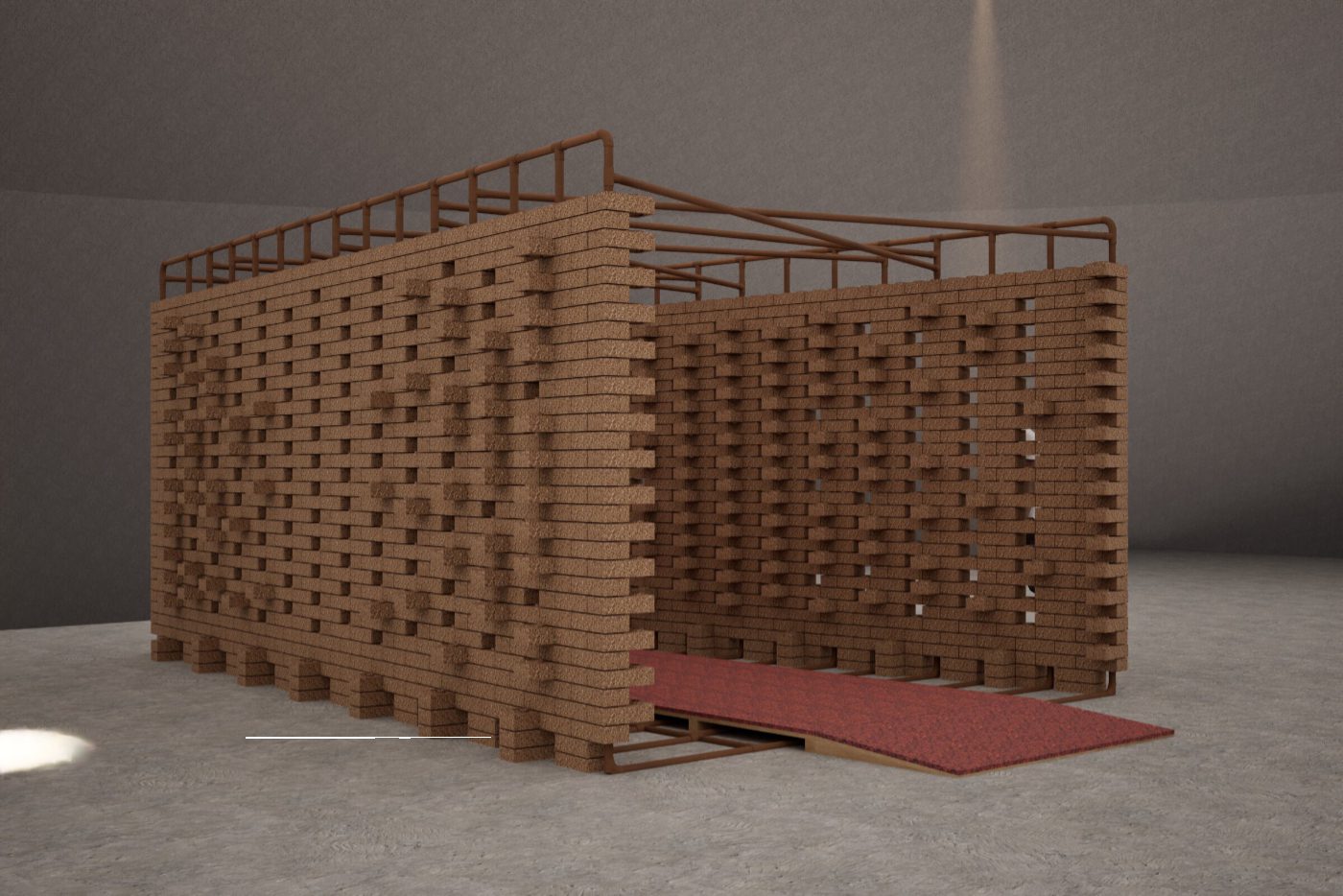Project development: Brazil
Soil
When addressing extremes, we begin by questioning how to live, adapt, and, above all, how to build in the extreme conditions we are heading toward. We therefore adopted the most common material, a hallmark of buildings and urban landscapes, both in the formal and informal city: brick. This experimental construction seeks to investigate ways to build better with brick, which, despite its small size, has a significant impact on a large scale. Eco-brick was chosen because it is made from soil, an element found throughout the territory, and because it requires no firing, only sand, cement, and water pressed together. These bricks are then assembled in the pavilion without mortar, using self-weight support devices and a tubular structural mesh. A dry, demountable, extreme structure.
Common
While demountable and adaptable to various configurations, the pavilion fits specifically into the site where it will be exhibited. Starting from the converging lines of the Oca ramp, it continues these invisible lines, completing the space's trajectory. The walls neither divide nor create enclosed spaces; they direct, inviting the gaze and the walk toward this open, suggested, communal space. The intervention also sparks discussions about temporary construction models in emergency situations, reinforcing that the new challenges we face increasingly require the practice of proposing new architectures.
Common Soil
Common Ground addresses what is inherent to our existence, our soil, while also addressing what is ordinary and everyday. It therefore reflects on what we share, how we live in community, how we share what is common to us.




